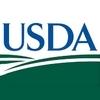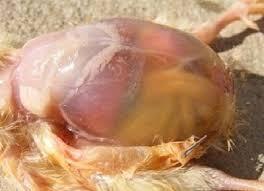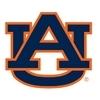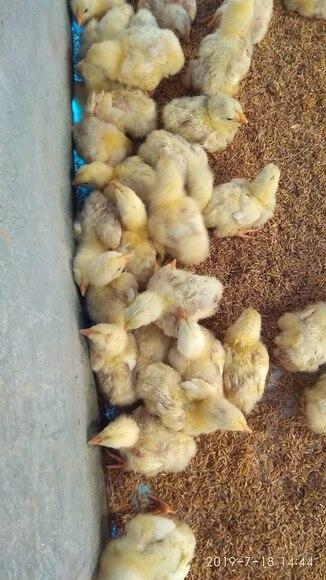Explore all the information on
Metabolic and nutritional diseases in poultry
Deficiencies or disturbances of nutrition cause a variety of diseases and can arise in different ways. The amount of a particular nutrient in the diet may be insufficient to meet the requirements, the diet may contain substances that inactivate the nutrient or inhibit its absorption/utilisation, or metabolism may be upset by the interaction of dietary and environmental factors. Peroxidation of lipids or oxygen free radical generation in general is a physiological process important for cell metabolism, division and differentiation and also for the biosynthesis of hormones and prostaglandins. Several common health conditions can affect poultry, including visceral gout, fatty liver syndrome, cloacal prolapse, osteomalacia, vitamin E deficiency, and ascites syndrome. Understanding these conditions and implementing appropriate management strategies can help prevent and treat them effectively.
INTRODUCTION The domestic chicken has been an essential animal model and constitutes a remarkable source of high-quality protein for humans (Stern, 2005). Within the last 60 years, genetics of the domestic chicken ( Gallus gallus domesticus) have been able to create a bird that reaches commercial body weight in 5 weeks (Burt, 2007). Unfortunately, with this astonishing genetic development, other disapproving conditions such as adiposity, leg, metabolic and reproduction...
Comments : 0
Recommendations: 0
1. Introduction Similar to mammals, the liver in birds is involved in an array of metabolic and homeostatic functions and considered as a biochemical factory responsible for most of the synthesis, metabolism, excretion, and detoxification processes. It plays an important role in digestion and metabolism, regulating the production, storage, and release of lipids, carbohydrates and proteins [1]. The liver produces a variety of proteins, including blood proteins, enzymes, hormones,...
Comments : 1
Recommendations: 2
.jpg&w=3840&q=75)

Biodegradation of Mycotoxins: A Biotechnological Innovation for Safe Animal Feed
Suggested link
Introduction With the expansion of the commercial broiler chicken industry, metabolic disorders have become emerging serious hazards in bird’s health and profitability (Savard et al., 2013). Fatty liver, among many other metabolic syndromes, has not received adequate attention in broiler research while it plays a significant role in the pathogenesis of many liver and kidney diseases and may directly cause low performance and a great economic loss (Zhang et...
Comments : 8
Recommendations: 2
Highlights of this research Chronic Inflammation means losses and can cause a reduction in growth up to 30% Chronic gut inflammation often seen in field...
Comments : 3
Recommendations: 0
USDA researcher Michael Kogut talked about microbiota and immune response after a lecture in Chapeco, Brazil....
Comments : 1
Recommendations: 4
Beneficial effects of CoQ10 supplementation have been demonstrated in human patients with cardiovascular disease , hypertension , and chronic obstructive pulmonary disease. #Ascites, one of most common metabolic diseases in broilers, causes great financial losses ($1 billion p.a)to poultry farmers around the world. Etiology of ascites in chickens surrounds 3 aspects: (1) Pulmonary hypertension, (2) Miscellaneous cardiac pathologies, and (3) Cellular damage caused by reactive oxygen species....
Comments : 1
Recommendations: 1
Anatomically, the main structural unit that conforms the liver are microscopic cells called hepatocytes. When hepatocytes are loaded with fat or pigments, as a consequence of some of the elements that we are going to describe in this article, some changes in color will be observed. The main factors involved with coloration changes in young and adult commercial birds are the following: physiological, nutritional, ingestion of toxic substances, and/or management-related practices...
Comments : 0
Recommendations: 0
Introduction With an average of 314.2 kg/capita consumed per year worldwide, poultry meat is the most widely eaten type of meat in the world (OECD, 2019). Poultry production and consumption have increased substantially over the last 40 to 50 y and are expected to further increase, especially in developing countries, which may make chicken meat the most valuable meat protein source for a growing global population. The universal success of chicken meat is found in its...
Comments : 0
Recommendations: 1


Natural Remedies Standardized Botanical Powder (NRSBP™), a new concept in phytochemicals
Suggested link
Amit Morey (Auburn University) talked about the search for better methods of quality control regarding poultry meat, during IPPE 2020 in Atlanta, USA....
Comments : 2
Recommendations: 0
The uterine prolapse is one of the problems facing egg-producing poultry growers, whether it is eggs for hatchery or for human consumption.
In the normal situation and when laying eggs, part of the oviduct is taken out for a few moments and then return to the normal state. However, sometimes after ovulation, a reversal of that part, especially the last part of the uterus and vagina, can not return to the normal state. Which causes what is known as uterine prolapse and in severe cases...
Comments : 6
Recommendations: 7
I have been looking for a solid answer regarding this topic: Why do rickets occurs mostly in young chicks? Anyone having better knowledge is welcome to join this discussion...
Thanks...
Comments : 11
Recommendations: 0
Wilmer Pacheco (Auburn University) explained the results of this research and some interesting findings regarding performance and incidence of myopathies, during IPPE 2020 in Atlanta, USA....
Comments : 1
Recommendations: 3
Guillermo Tellez (University of Arkansas) discussed his research on the correlation between adipose tissue and woody breast, during IPPE 2020 in Atlanta, USA....
Comments : 0
Recommendations: 5
What is the major reason fo low feed consumption and lameness. Any difficiency daminate this. Here attached few of the pictures and videos...
Comments : 1
Recommendations: 0
INTRODUCTION Advancements in clinical veterinary medicine have resulted in portable diagnostic tools that provide rapid, cost-effective means to investigate metabolic disturbances using blood samples. The handheld i-STATR 1 (2006) analyzer (Abbott Laboratories, East Windsor, NJ) requires a relatively small blood sample (∼100 μL), can be performed “pen-side,” and may be useful in population medicine for commercial egg production systems. The i-STATR 1 has been...
Comments : 0
Recommendations: 1
Casey Owens Hanning (University of Arkansas) shared the results of this research and the characteristics with better prediction value, during IPPE 2019 in Atlanta, USA....
Comments : 1
Recommendations: 2
...
Comments : 0
Recommendations: 1
1. Introduction In the US, 30 serovars of Salmonella enterica causing foodborne illness persist at an incidence in the general food supply to warrant continuous survey [1]. Several serovars are of interest for their association with eggs and poultry products. Phenotype microarray (PM) data were accumulated for the top 4 serovars of Salmonella enterica linked to chicken (Typhimurium, Enteritidis, Heidelberg and Infantis)...
Comments : 0
Recommendations: 0





.jpg&w=3840&q=75)













.mp4&w=3840&q=75)

.mp4&w=3840&q=75)







.jpg&w=3840&q=75)



.jpg&w=3840&q=75)











